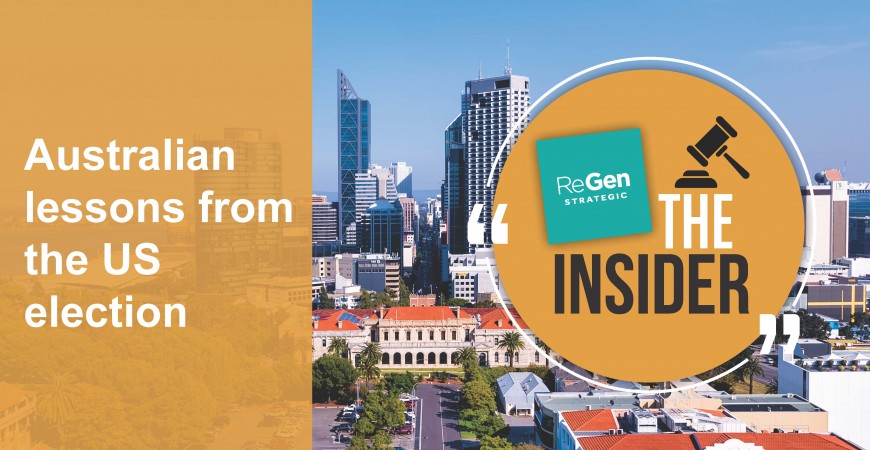At the time of writing this article, there are 74,916,518 unique reasons why US citizens elected Donald Trump. Trying to pinpoint the one thing that led to this outcome, or even a handful of defining reasons, will be fossicked over for decades.
The US political system is a truly different beast to any Australian jurisdiction, with non-compulsory voting, winner-takes-all outcomes and the obvious malapportionment of the Electoral College.
But there are several observations that deserve careful consideration by governments and political parties across Australia, particularly in the lead up to both the Federal election and WA election, in early-2025.
Voters aren’t stupid. It really is the economy.
Irrespective of any headline economic figures, the prevailing public sentiment for most of Joe Biden’s term was that the US had been heading in the wrong direction economically.
Short exposure to economic pessimism should cause alarm for any incumbent government. Long exposure is terminal.
The Democrats failed to present a clear, compelling and inclusive economic pitch to US voters and Donald Trump exploited this savagely.
Yes, Trump is chaotic. But his refrain of ‘America First’ cut through.
This is playing out similarly in Australia, where public polling has consistently highlighted an increasingly negative view of the nation’s economic circumstances.
Beyond headline inflation rates and dizzying forecasts of infrastructure spending, all political parties need to carefully craft a narrative that directly address the concerns of households.
Queensland Labor pulled back several seats recently due to a direct pitch to kitchen tables – and school lunch boxes – so don’t be surprised to see some very direct cost-of-living relief featuring heavily both federally and in WA.
Leadership change is never popular.
Once again, a democratic election has exposed the public’s deep frustration and sense of injustice with leadership change.
Coupled with an impossibly short campaign for Kamala Harris to make her case, there was an unmistakeable impression that the public were being taken for mugs when Joe Biden was replaced after a horrific presidential debate.
Australia was a pioneer of this phenomena– most notably through the Rudd-Gillard-Rudd and Abbot-Turnbull-Morrison years – with the major parties ultimately adjusting their internal rules to provide greater certainty.
Expect parties to lock in behind their current leaders, lest they face the wrath of a disgruntled electorate that views these machinations with cynicism.
Don’t go chasing culture wars.
Fortunately, Australia still feels somewhat removed from the hyper-partisan and hyperventilating US media market. However, whichever side we might find ourselves on, social media and the echo-chambers that it creates is changing our view of what the ‘other side’ think.
As stated earlier, non-compulsory voting, first-past-the-post and the Electoral College appear to magnify the impact of contentious policy. As a result, a US voter in a smaller swing state, potentially enraged by left-wing or right-wing grievances, has an outsized impact when casting their ballot.
Australia appears to iron out the friction associated with these issues, with compulsory voting, a preferential ballot and a less partisan media.
While any of the lessons of last week’s US election appear to have been meted out on the Democrats, there is probably more of a veiled warning for conservative candidates in Australia.
There has been a temptation in recent Australian elections to nakedly pursue polarising and socially regressive issues – think Katherine Deves in 2022 or the anti-abortion stances taken in Queensland recently – but Australia’s voting population and our electoral system appear to take a dim view of this imported brand of politics.
Incumbency ain’t what it used to be.
Kamala Harris and the Democrats faced the same ignominious fate as every other incumbent national government going to the polls in 2024.
In challenging economic times, whether it be inflation, deflated commodity prices or volatile trading relationships, incumbency is not the buttress of electoral fortunes that it was once thought of.
Australia’s electorate is volatile and a consistent retreat from the major parties is evidence that more and more voters are prepared to make a different bet than last time.
Rather than relying on any past record, expect the pitch from major parties to express bold and competing visions for Australia’s future – be it on energy, climate change or housing affordability.
To borrow a famous Southern phrase - ladies and gentlemen, start your engines.
 ReGen Strategic
ReGen Strategic